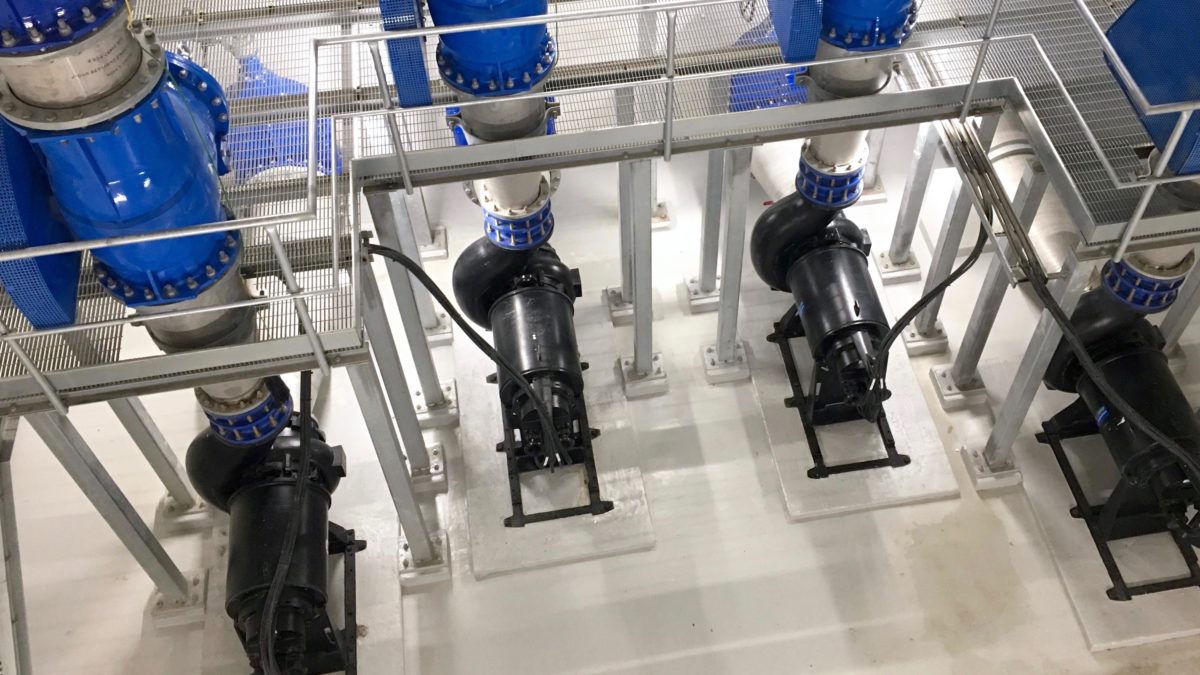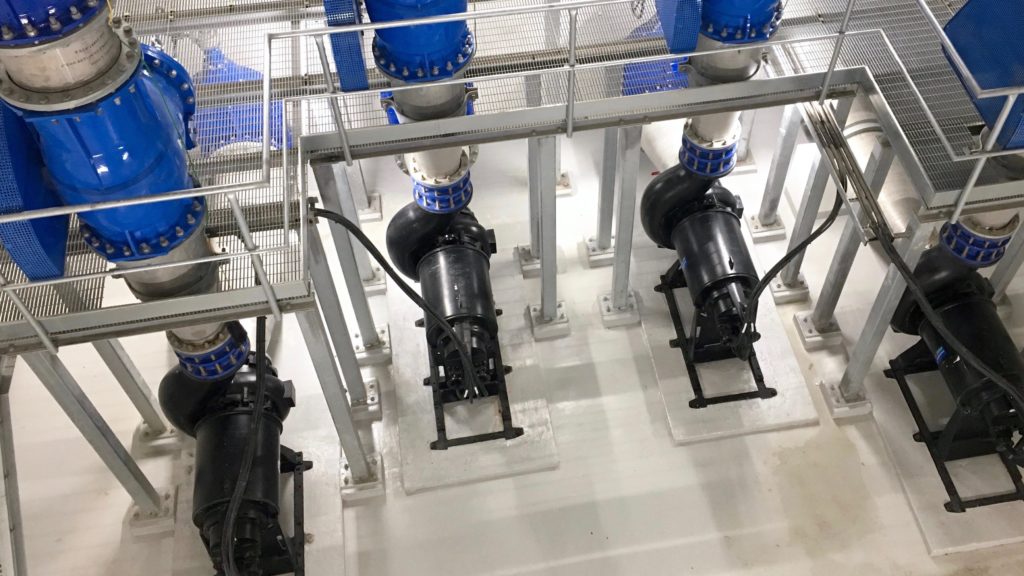Agile experiments deliver results in Tampere
14.3.2019
The Smart Tampere agile experiments combine the needs of the city with the solutions provided by companies. Together Steamlane, the City of Tampere and Tampere Water were able to produce useful information about the functioning of a stormwater pump station.
Steamlane is a Tampere-based data analytics and artificial intelligence enterprise founded in 2015. When the Smart Tampere program (implemented by Business Tampere and the City of Tampere) sought proposals for agile experiments, Steamlane seized the opportunity and suggested its own solution for the intelligent monitoring of pumping stations in the city water infrastructure.
– Development is most efficient in the actual environment, Steamlane CEO Ari Karppinen summarises the company’s interest.
Steamlane had already experimented with the solution in another kind of setting. The company thought the city’s water infrastructure could bring a new perspective in developing the solution further and help confirm its commercial scalability. The City’s interest lay in the possibility of testing a service to enhance proactive maintenance.
– The City uses various pumps end engines in a number of instances, so there are many application areas for predictive maintenance. The solution proposed by Steamlane fits this need well and was thus chosen for agile experimenting, tells Mika Heikkilä, Project Manager of City IoT.
Measurements from pumps to cloud
The experiment got a rapid start. The first meeting was held in early September and by the end of the month the necessary pilot instalments had already been made. Two targets were chosen: the Roine raw water pumping station and the Kauppi Campus stormwater pumping station within the Tampere University Hospital area. Raw water is pumped continuously, whereas the stormwater pumps only function when needed. The Kauppi station makes sure the hospital area isn’t flooded by even the heaviest rainstorms.
– The Kauppi Campus pumping station is a new facility only completed last year, so it was truly interesting to see what we could learn about it through this experiment, says Maria Åkerman, Water Management Engineer for the City.

The Steamlane experiment gathered data by wireless sensors installed in the pump frames, and produced analysed information based on the measurements. Data recording and refinement take place in a cloud, and the Steamlane solution also includes a monitoring application to represent the results in real time.
The enhanced information helps using and maintaining the equipment as efficiently as possible. Predictive condition control can bring considerable advantages in optimising the service schedule of long-lasting equipment.
– Servicing too early means extra work, servicing too late will cost more. Proactive monitoring will spot the signs of maintenance needs before they become visible or audible, says Karppinen.
Useful findings in only three months
After three months of measurements Steamlane analysed the results. Despite the fairly short measurement period, interesting findings and deductions from the data proved useful for the City.
– We got clear and valuable knowledge for the initialisation of the Kauppi Campus pumping station. Based on that we can estimate, whether the pumps will function as planned and, if needed, act to lengthen the working life of the expensive equipment, tells Åkerman.
Continuous condition monitoring isn’t a new invention, but lately the technology has been developed so it can be used more efficiently in more numerous instances. Data gathering and analysis are on the increase, and the nucleus of Steamlane’s business is in AI-assisted data analytics. When the amount of information grows too large for human scale, AI can offer the essential inferences on which to base decision making.
– We want our customers to understand the possibilities of AI-assisted data analytics and to find the targets where it is worth utilising. This is why we have a data clinic service that has been tested in the Startup Tampere agile experiments, says Karppinen.
Keys to speed
The Steamlane experiment is a model example of an agile experiment that advances true to its name – fast. The initialisation was made easier by Steamlane’s readiness to tailor the solution for a new target immediately. Karppinen lists other keys to success: the experiment was begun with a clear contract concerning both content and funding, the cooperation with the City and Tampere Water worked smoothly and there was a trustworthy partner company.
– In the measuring solutions we had a partner Treon, that is basically our neighbour here in Tampere. So the experiment has also strengthened the local business co-operation network, says Karppinen.
The City appreciates the fluency as well: a small work input produced a large amount of useful information. In the end the objective of the experiments is to develop intelligent solutions to save the taxpayers’ money.
– The city is growing but the resources can’t keep up. With the agile experiments we aim to find ways of mending this gap by IoT solutions and the optimising they enable, says Heikkilä.
The results of the experiment help Steamlane towards commercialising the solution as the water infrastructure turned out to be a suitable application area. The experiment did also give Steamlane an outstanding reference.
– This project is a showcase when we approach other operators in water infrastructure. In fact we already used this opportunity during the experiment, Karppinen says.
Further reading: Agile experiments help create useful urban services